All Rights reserved
By continuing to use our site, you agree to our Private Policy and Terms of Use.
The most inspiring part of a Pete Buttgieg fundraiser held in Los Angeles last Tuesday wasn't the man standing on stage. It was his audience.
The crowd at Avalon, a two-story nightclub located at Hollywood and Vine, was packed with same-sex couples bearing witness to history, arms wrapped tightly around one another beneath the dim blue light of the stage. Aside from Republican Fred Karger's 2012 campaign for president, this was the first chance they'd had to see someone like them compete for the highest office in the nation. The emotion in the room was so tangible that it should have been listed on the program as the evening's emcee.
Yet the candidate on stage, perhaps in keeping with his brand, was muted in his approach to the historical nature of his candidacy. Buttigieg, the first gay man to compete for the Democratic nomination, didn't mention LGBTQ+ issues at all during his address. In fact, the word "gay" was only mentioned once, a brief and perhaps unintentional aside the candidate quickly pivoted away from.
As is customary practice during campaign stops, the fundraiser didn't begin with Buttigieg himself, but with a series of introductions intended to personalize the candidate to the audience. The first was from an L.A. local who claimed the South Bend, Indiana mayor exemplifies "all the qualities [he wants] to see in the leader of our country," describing him as a man of decency and principle. Next up was the actress and singer Mandy Moore, who credited Buttigieg with being "actually a real human being."
"The way he's able to articulate his message and his plans, they never feel unattainable," Moore said, radiating near radioactive-levels of enthusiasm. "It never feels like he's speaking over you. It really feels like he's speaking to you."
Afterward Buttigieg strode across the stage in his customary campaign trail attire: a solid white dress shirt offset with dark trousers lightly crinkled, as if he'd just stepped out from a long day behind the mayor's desk. Talking points included gun control, reproductive health care, and the urgency of climate change. "This is our shot," he said of our current global warming crisis, "and if we don't act, we will find ourselves in a few short years past the point of no return."
If the soiree was billed as a "conversation" with the candidate, notably absent from the discussion was any mention of LGBTQ+ rights. It was a glaring omission given not only Buttgieg's historic stature in the 2020 race, but also the demographics of the crowd he was addressing: The same-sex couples that buttressed the room represent the second-largest LGBTQ+ population in the U.S., behind just New York City. More than 150,000 queer and trans people call Los Angeles home, and given the lines pouring out the doors and down the block, half of them were at the Avalon on Tuesday night.
Energizing his base of LGBTQ+ supporters by addressing issues impacting their community would make particular strategic sense in California's largest metropolitan area. This year, California's primary has been bumped up from June -- after the presidential nominees have already been tapped -- to Super Tuesday, increasing its importance in the Democratic primaries.
The fact of Buttgieg's identity was not entirely AWOL, although allusions to his personal life were often oblique or interrupted. In his opening remarks, the candidate brought "greetings from Chasten, as well as Buddy and Truman," referencing his husband and two dogs. While his partner's name was mentioned once more, it was without any context about their relationship. Presidential candidates often tell cherished anecdotes about their significant others, whereas an audience member unfamiliar with Buttigieg may have plausibly wondered what the heck a "Chasten" even is.
Those partial to Buttgieg are likely to interject that the gathering was a campaign event for a major 2020 contender, not a rehearsal dinner for the couple's wedding. That is true, and every politician is free to discuss their relationships in whatever manner they wish, whenever they wish to do so.
And yet Buttgieg's difficulty with artfully weaving his status as an out gay man into the discourse the same way he thoughtfully addresses his vision and values was apparent thoughout the evening. With assistance from two student helpers -- a summer campaign intern who attends a local high school in L.A. and a Wesleyan University sophomore -- Buttgieg fielded a personal question from the audience during a planned Q&A. "Tell us a memory from 7th grade," said the intern after fishing a piece of paper out of a glass bowl.
After mentioning that Chasten (again, referred to only by first name) taught 7th grade, Buttgieg applauded the questioner, themselves a middle school teacher, for their sacrifice. "I very much feel ready for the presidency," he said, "but what you do is extraordinary."
When it came time to recall an actual memory, things got off to a good start, with the candidate finally summoning that ever elusive word (emphasis mine).
"Most of what I remember from seventh grade is of not being sure if I belonged," Buttgieg said. "I had begun to figure out what it meant to be gay. I was also just really awkward, some might think I'm awkward now, a different kind of awkward. Seventh grade is hard. It's the toughest because we've grown sophisticated enough that we have the capacity to hurt people and ourselves, but not sophisticated enough that we have the ability to manage that. It's just such a morally tender age."
The beginning of his answer was reminiscent of what Buttgieg is able to do at his best: use his struggles growing up as a closeted gay kid in rural Indiana to show LGBTQ+ Americans that their dreams are possible. They, too, could be campaigning for the presidency one day.
"To my knowledge, there was zero out students [in my high school]," Buttgieg said in a March interview with Mother Jones. "You think you're the only one. You think there's something wrong with you."
But while the question was a prime opportunity for Buttgieg to discuss his middle school identity crisis or how the experience of being a young gay man informed his advocacy for the marginalized and disenfranchised, it felt more like a slip than rather than an intended narrative thread. He quickly moved on from the point, instead talking about Robert Frost. Like an eager college sophomore giving a campus tour to prospective Brown students, Buttgieg waxed about how reading "The Road Not Taken" changed his life because it taught him "how to be a good person."
"These are the things that you should think about when you're in seventh grade ... what literature means, what science tells you about the world, not the stuff that we have put on the shoulders of our young people," Buttgieg said.
The half-aborted remembrance was the final time Buttgieg would mention any LGBTQ+ related subject during the hour-long rally. That fact would have been less glaring if not for the timing of the fundraiser: It was held in the wake of the Trump administration filing a series of briefs to the Supreme Court arguing that federal laws do not prevent workers from being discriminated against on the basis of their sexual orientation or gender identity.
This issue is doubly personal for the candidate. Buttgieg hails from Indiana, one of the 29 states lacking comprehensive nondiscrimination laws on the basis of both sexual orientation and gender identity. That means in most cities and counties in his home state, Buttgieg can be immediately dismissed from his job if his boss saw a photo of Chasten -- yes, hishusband -- on his desk.
One cannot accuse Buttgieg of not talking about these issues. After the White House filed its most recent brief in a trio of employment discrimination cases set to be heard by the Supreme Court on October 8, he tweeted a Buzzfeed News story about it.
"Freedom means living free of discrimination because of who you are or whom you love," he wrote. "By arguing to legalize discrimination against LGBTQ+ Americans, this administration put themselves on the wrong side of history -- and our values. As president, I'll sign the Equality Act into law."
\u201cFreedom means living free of discrimination because of who you are or whom you love. By arguing to legalize discrimination against LGBTQ+ Americans, this administration put themselves on the wrong side of history\u2014and our values. As president, I'll sign the Equality Act into law.\u201d— Pete Buttigieg (@Pete Buttigieg) 1566605917
That statement reflects a strategic middle ground his candidacy has often attempted to strike: It's impassioned without getting too emotional, progressive without asking for too much, and wholly impersonal. It's boilerplate language which could have been tweeted by any of the two dozen people running for president. Julian Castro, for example, tweeted the exact same report while also calling to "end this backslide into hate and bigotry."
\u201cNo one should be fired because of their gender or sexual orientation.\n\nPeriod. \n\nPass the Equality Act. End this backslide into hate and bigotry. \n\nhttps://t.co/zsPFne0N5o\u201d— Juli\u00e1n Castro (@Juli\u00e1n Castro) 1566598769
When it has come time to meaningfully address the myriad attacks on LGBTQ+ rights by the White House, Buttgieg has repeatedly ceded that ground to his Democratic primary opponents. He has yet to directly address LGBTQ+ issues during either of his debate performances, while Kirsten Gillibrand (who recently announced she was pulling out of the race) spoke eloquently about the push to repeal "Don't Ask, Don't Tell," and Cory Booker addressed the epidemic of violence against transgender women of color.
It is Buttgieg's decision where and when he wants to discuss LGBTQ+ issues -- or any subject he likes. Yet the candidate has the unique privilege of being able to speak to queer and trans people terrified their country's future doesn't have a place for them in it from a place of lived experience. This isn't politics as usual. The lives and livelihoods of his own community are at stake.
To Buttgieg's credit, his audience didn't appear perturbed all the things left unsaid on Tuesday. After the candidate closed with a speech calling on Americans to address the "crisis of belonging" in our current culture, the crowd filed out of the venue warmly, chattering about how "amazing," "inspiring," and "well-spoken" Buttgieg was. It was clear this was a night that many would cherish for a lifetime, one that they would recount to their children and grandchildren as they explain what This Is Us was before all television became TikTok videos.
It was difficult not to be moved by the sheer fact of the event's existence. As this writer sat holding hands with his own husband in the press section, I thought about how impossible this all would have seemed 15 years ago: watching the first out gay candidate with a shot at the presidency prattle on about Robert Frost while drinking $5 bottles of water with my legally married partner. That reverie, however, was as much in spite of Buttgieg as it was because of him.
RELATED | Is Pete Buttigieg Really What We Need for President?



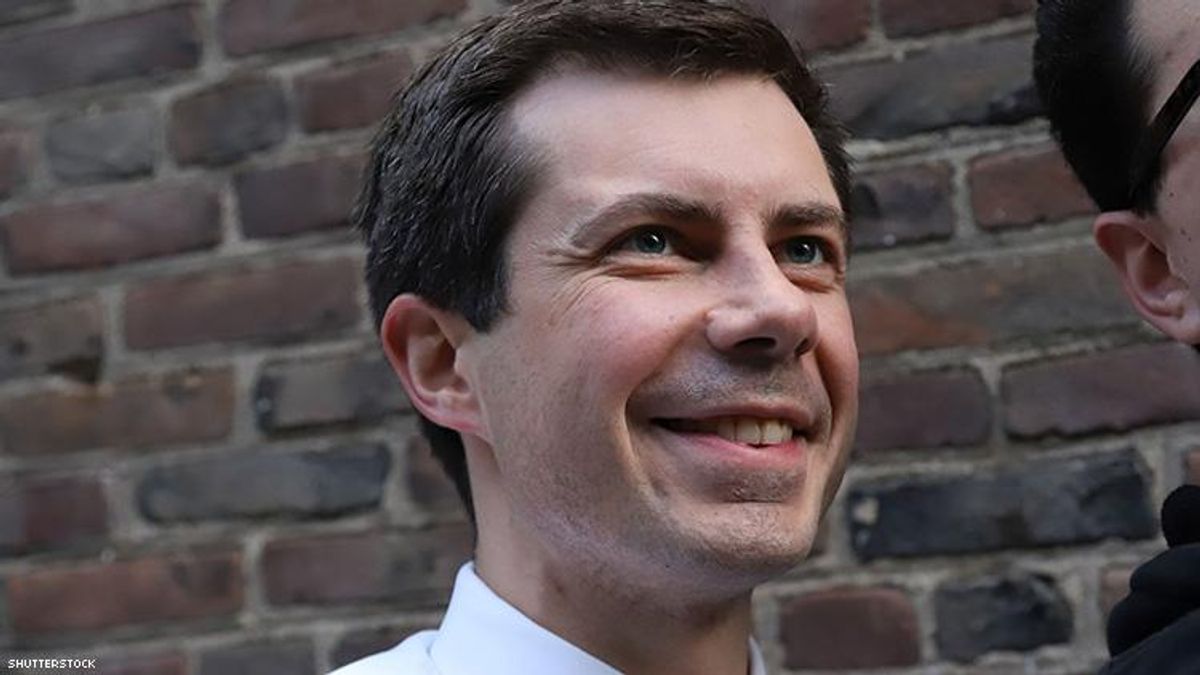















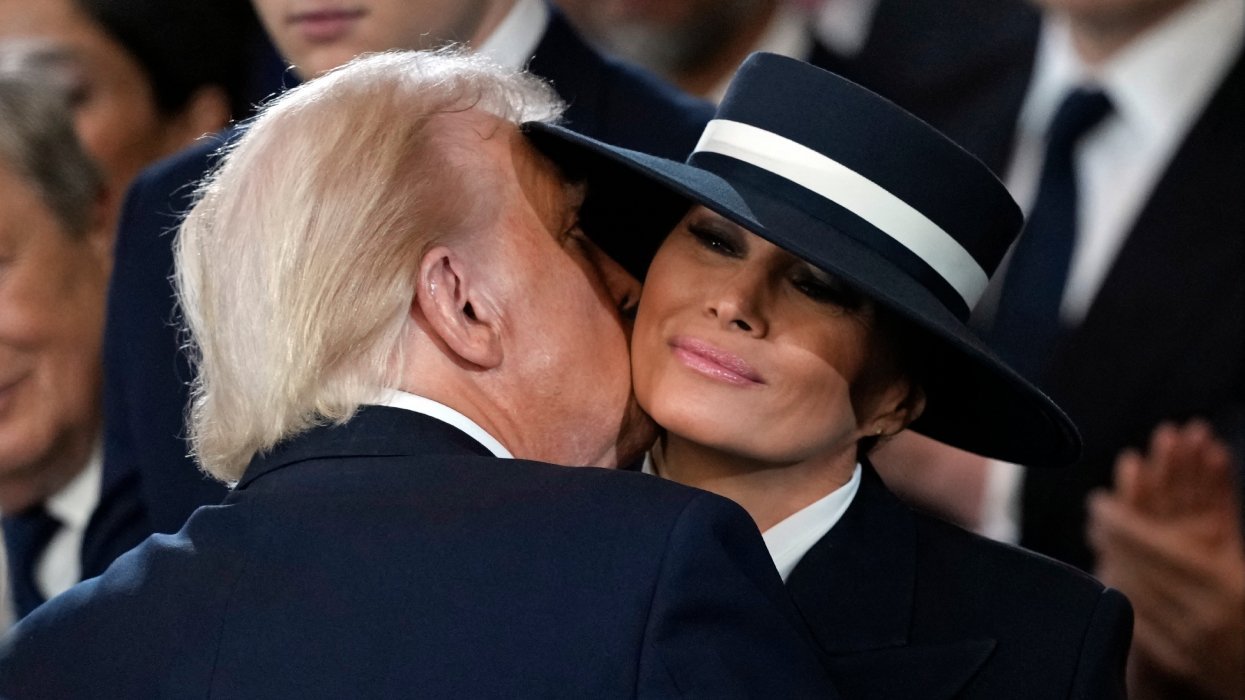


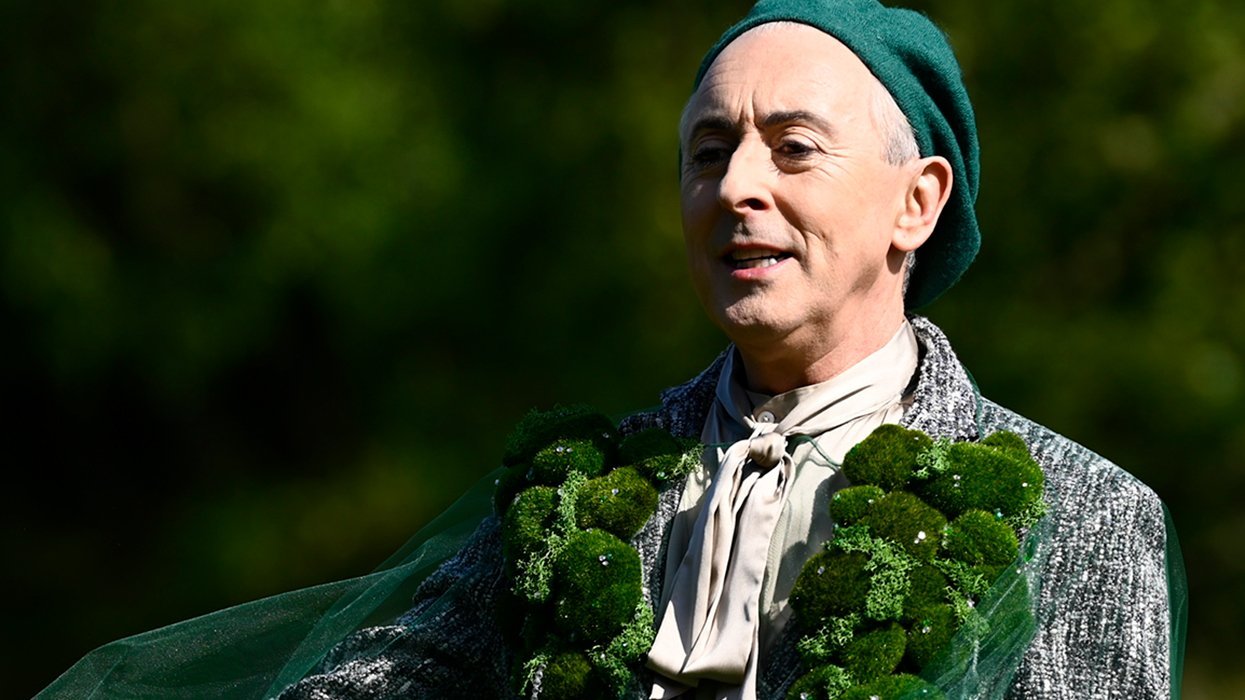
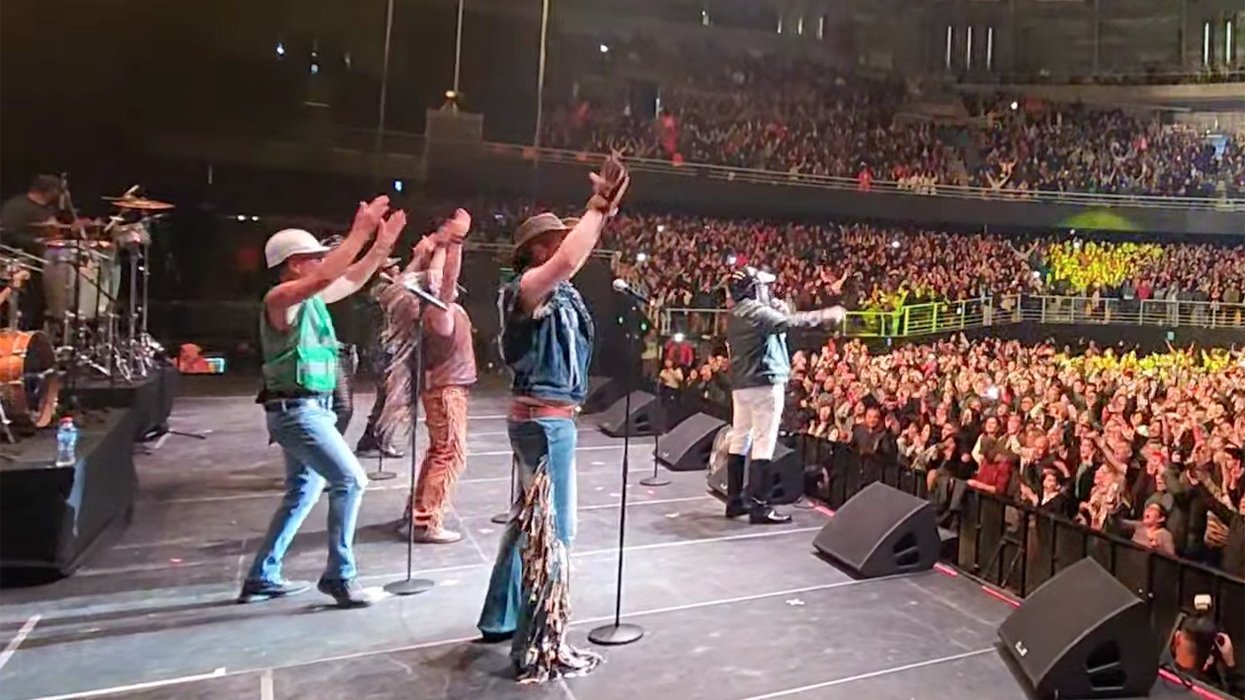
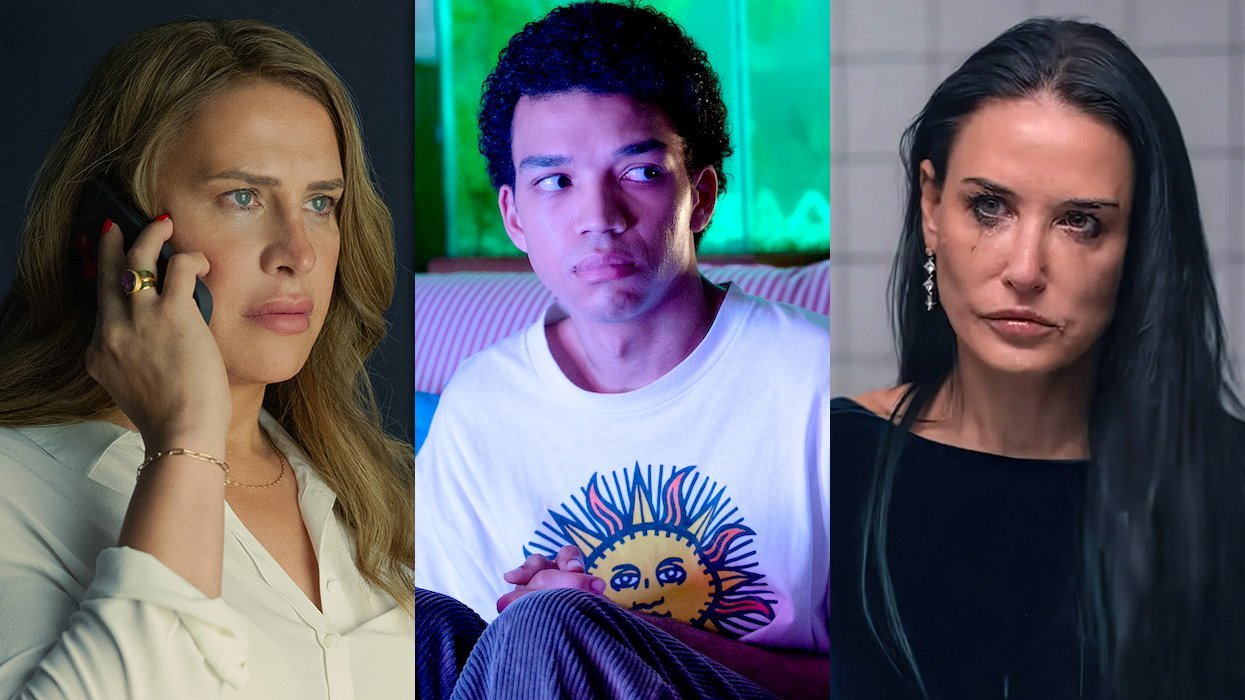
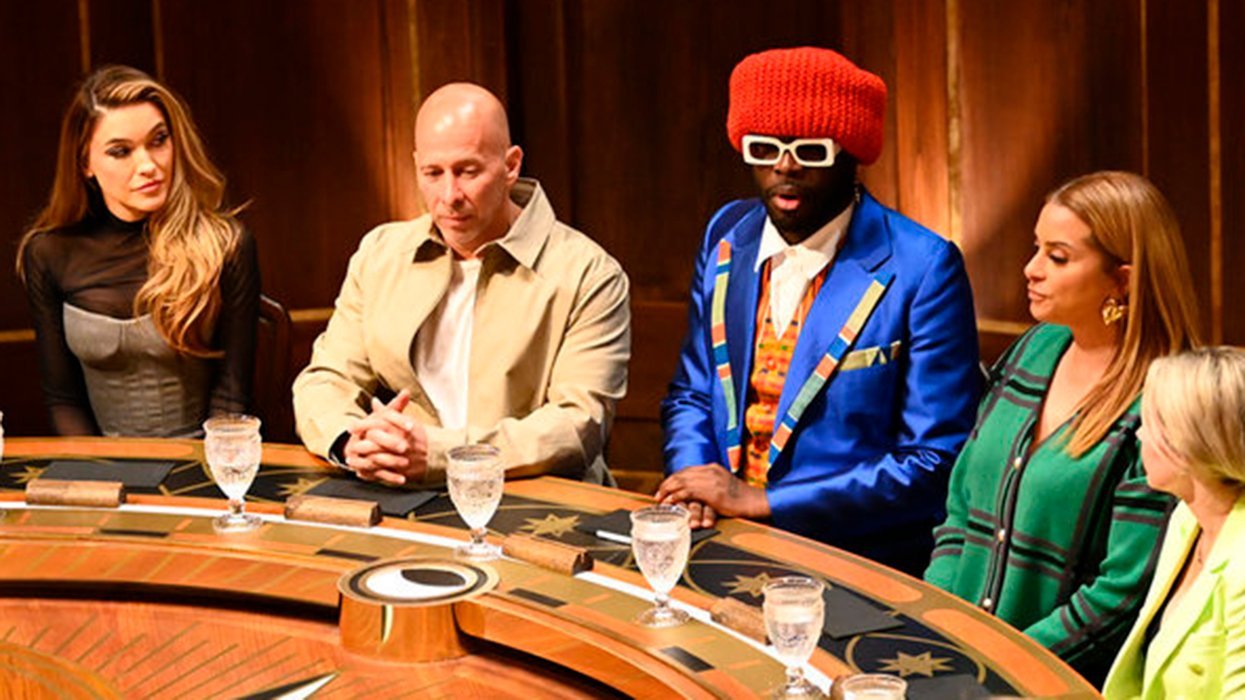
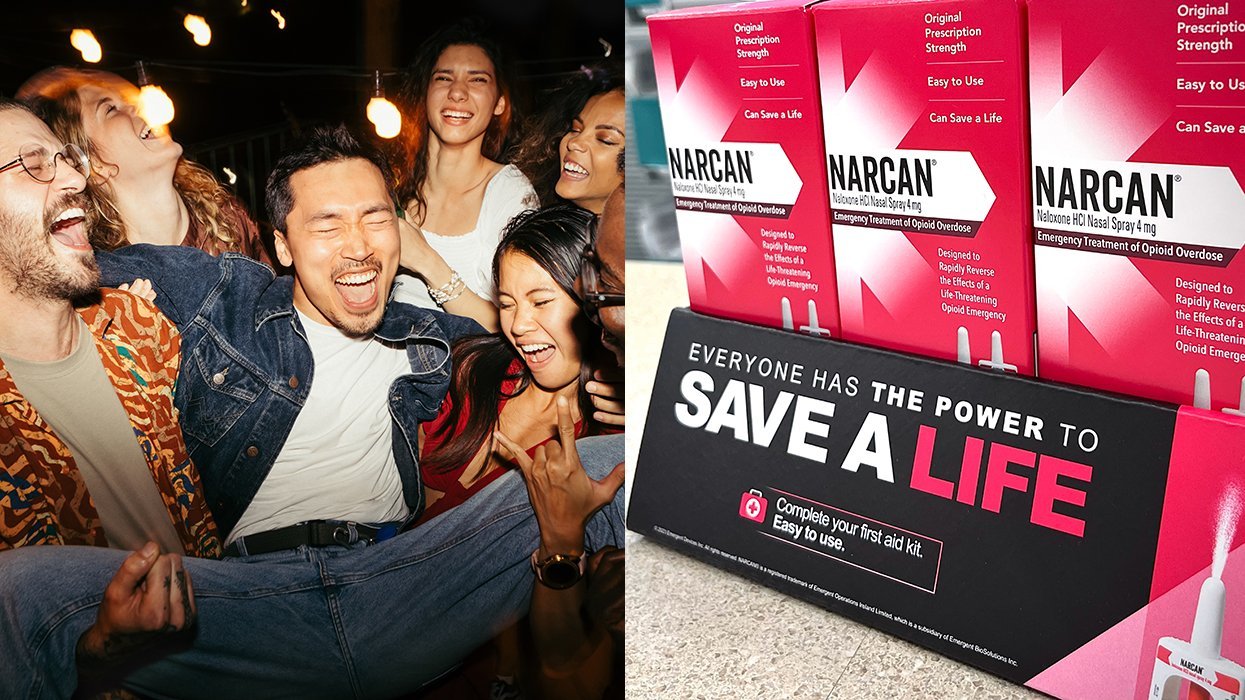
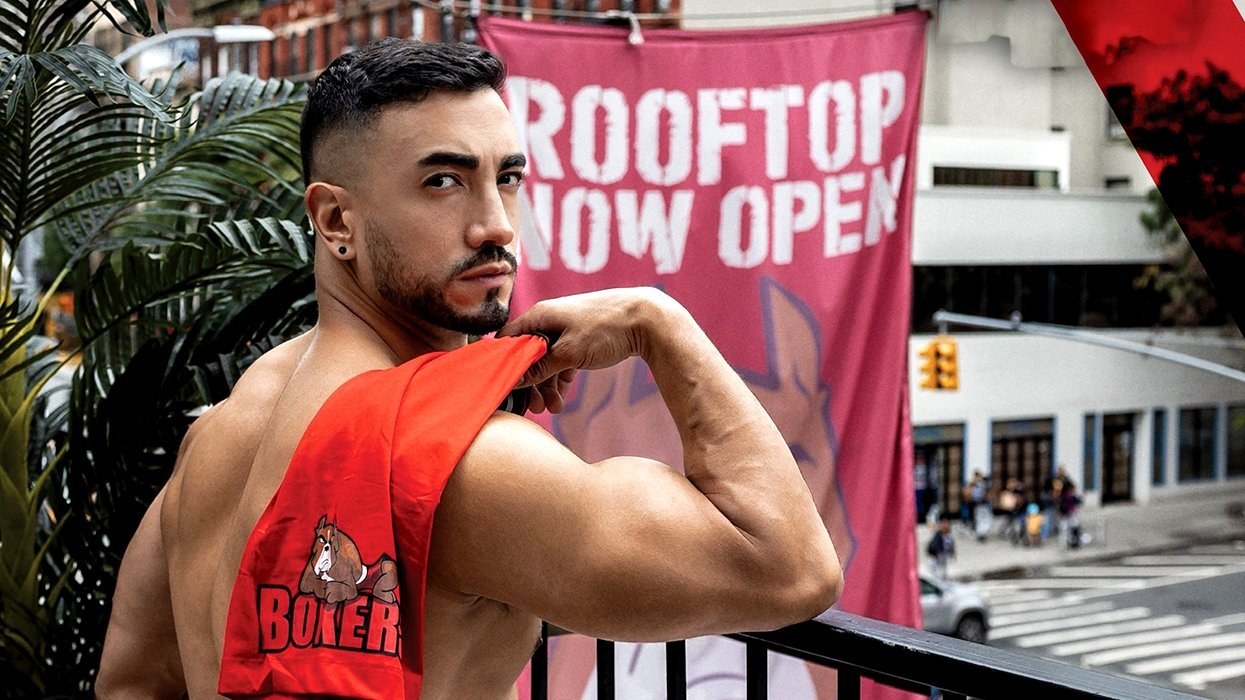
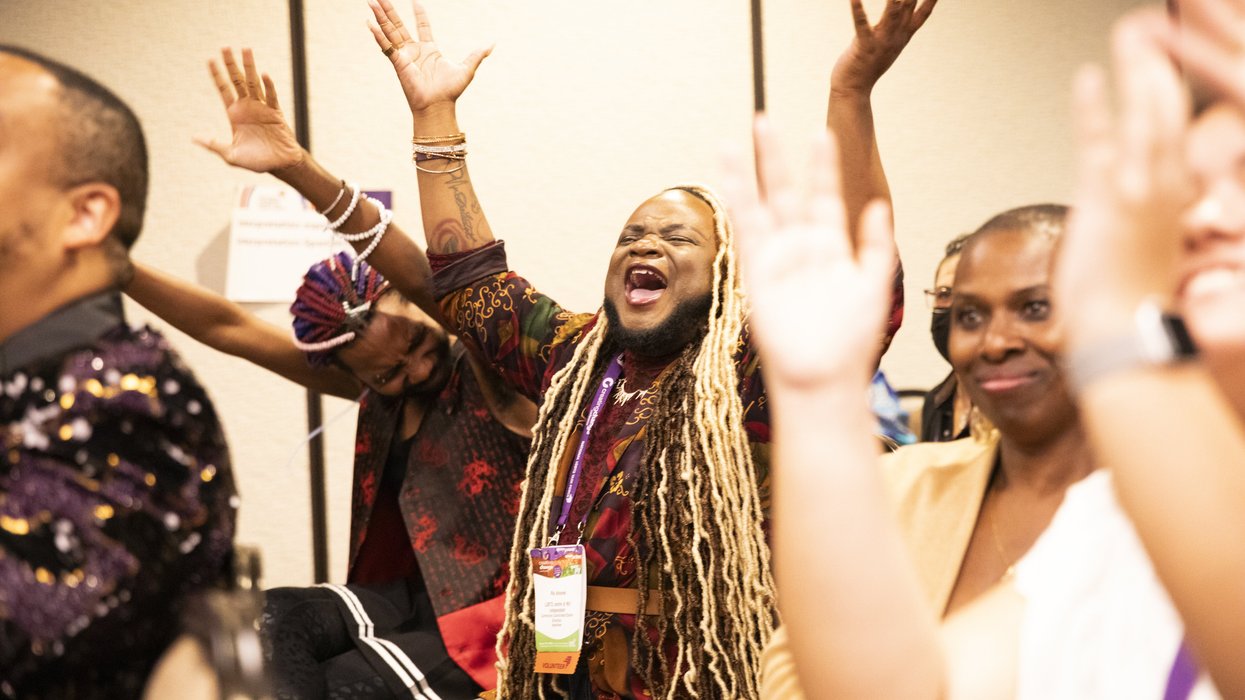
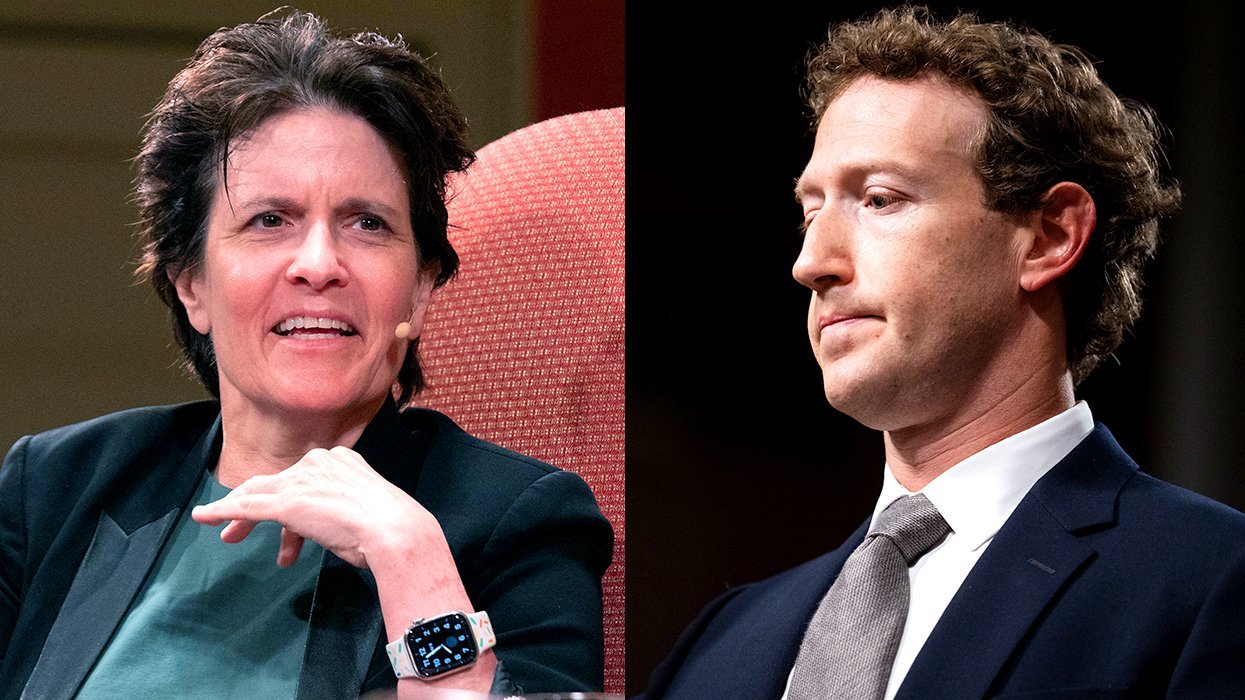
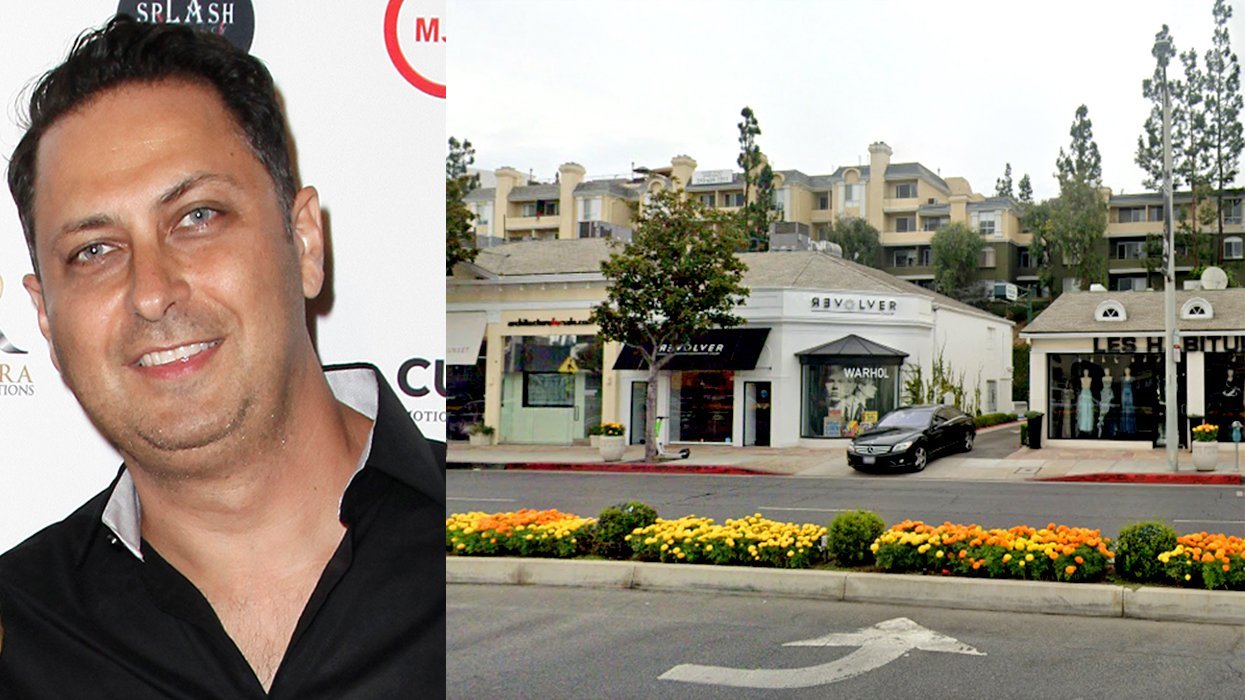
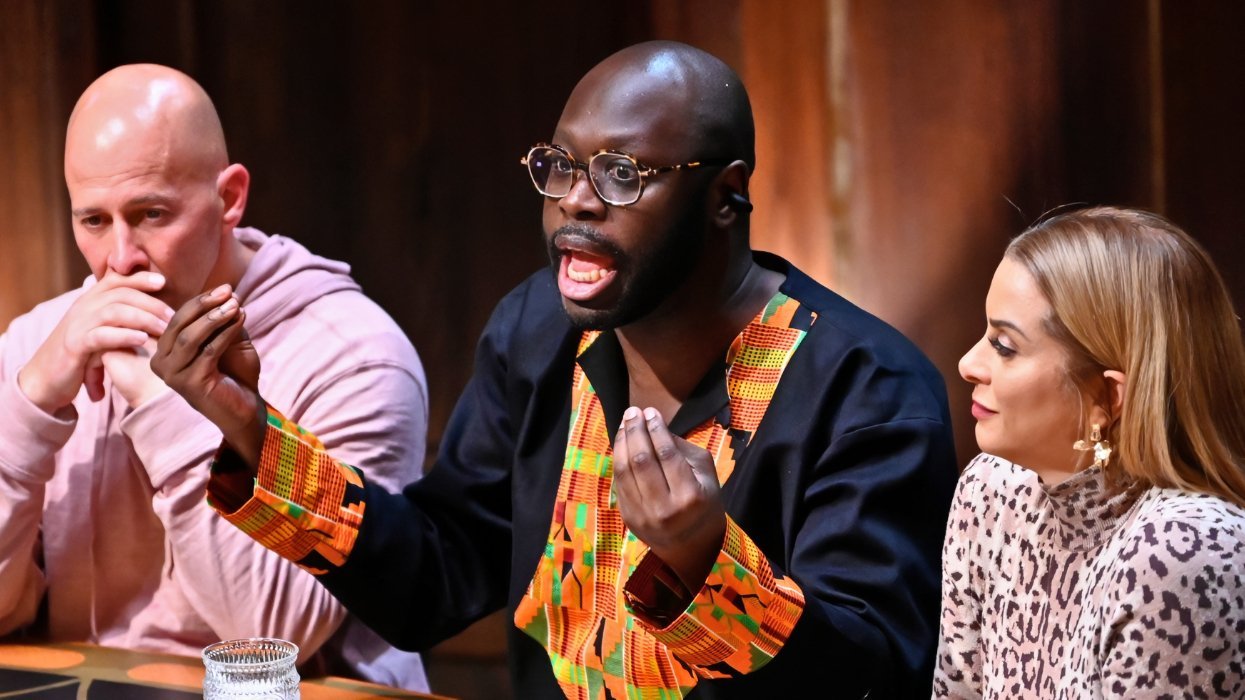
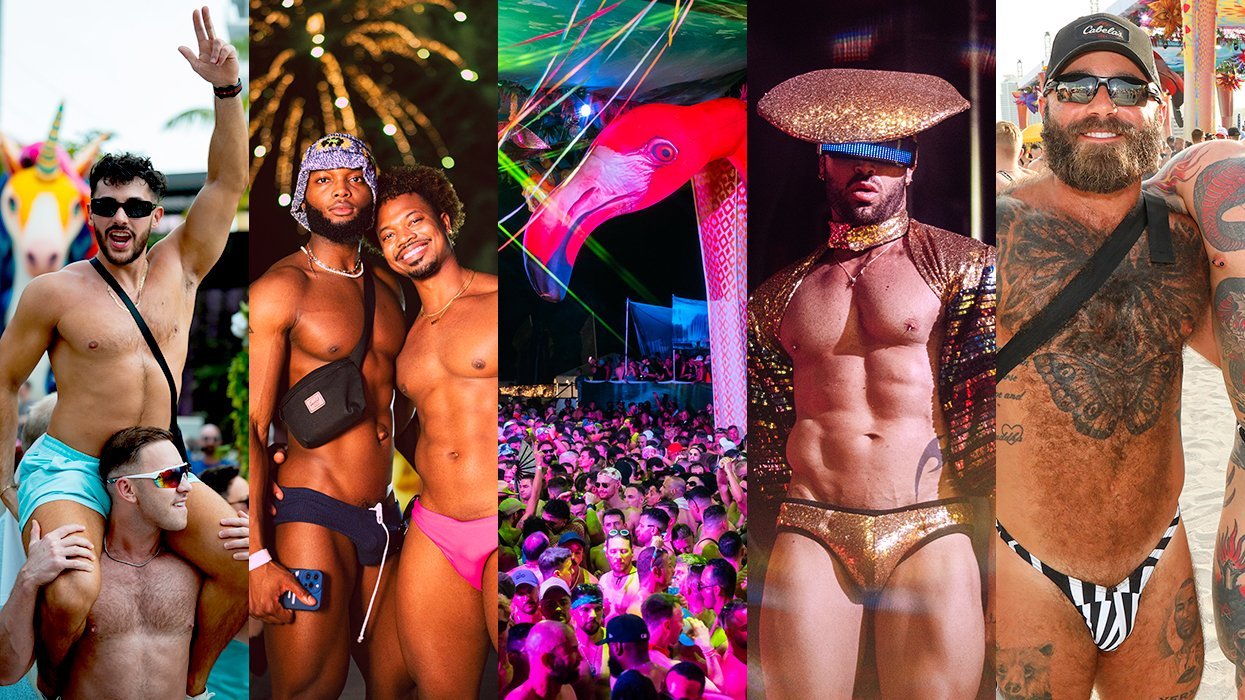

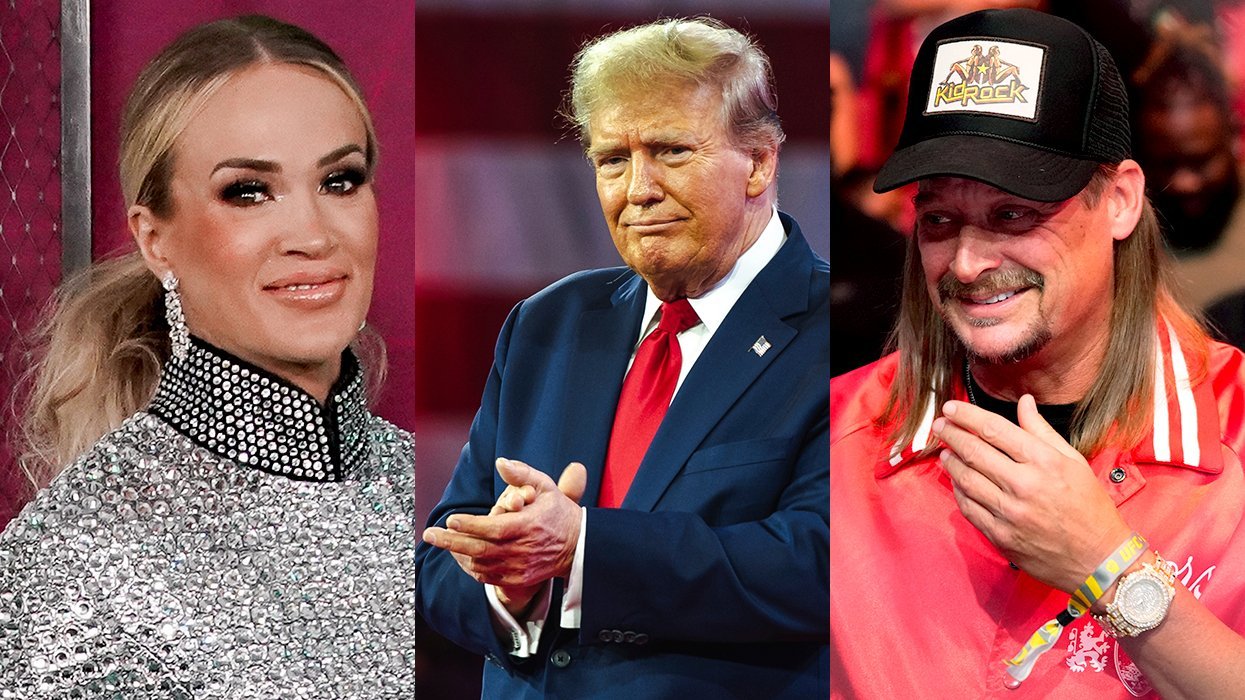




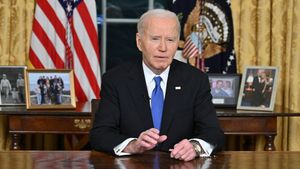







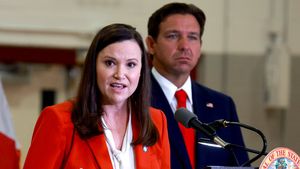


























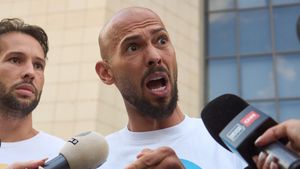






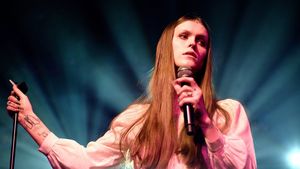


Beware of the Straightors: 'The Traitors' bros vs. the women and gays